As the COVID-19 pandemic lead to business closures and job layoffs around the country, Carl Sobocinski, owner of Table 301 Restaurant Group in Greenville, South Carolina, was desperate to find a way to help both his employees and others impacted by the virus in his community.
When the owner of Greenville business consulting firm Advoco told Sobocinski they’d have to cancel an annual conference they’d hired him to cater, an idea was born.
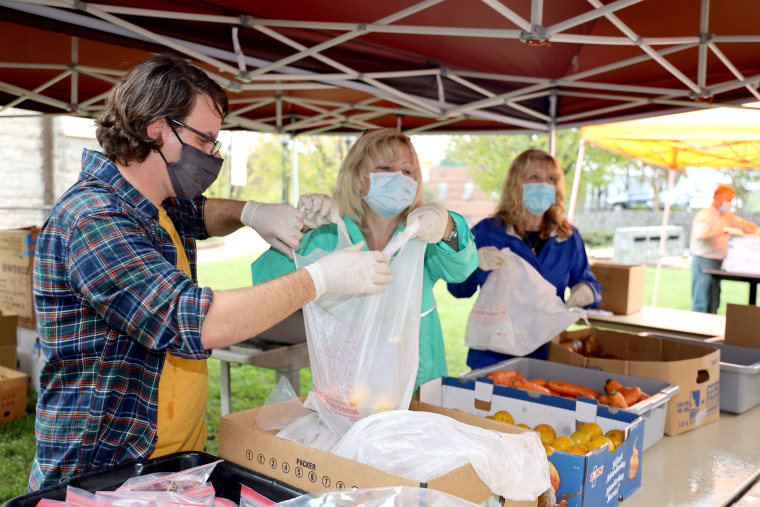
“He wanted to honor the catering commitment they’d made, and he said, ‘I’d like to help feed those that are struggling,'” Sobocinski told TODAY Food. “We put our heads together and I said, ‘What would be great for me is to know I had this $15,000 worth of income to put my people to work while helping the community at the same time.'”
Keeping people employed while feeding others
To achieve this goal, the pair brainstormed ways to provide as many meals as they could for local food banks, rehabilitation centers and shelters while employing Sobocinski’s staff to make them. The initial goal, to feed between 3,000 and 5,000 people, was quickly surpassed once other businesses heard about initiative and started making donations of their own.
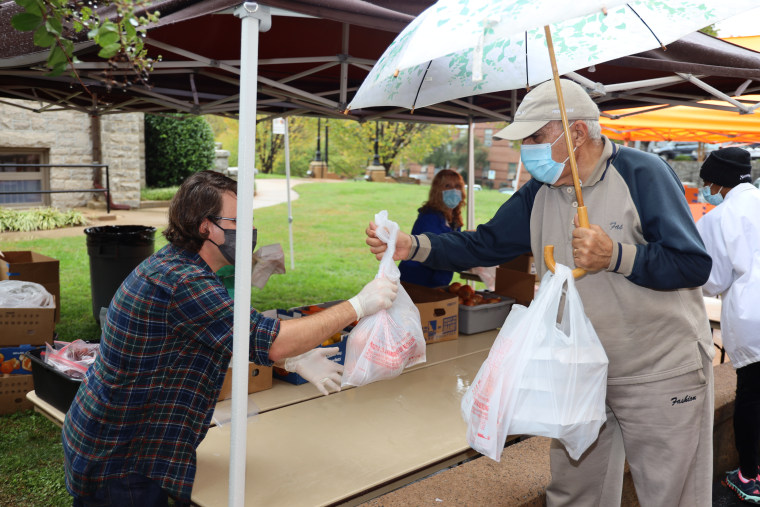
After Greenville County received federal funding through the CARES Act, which provides financial assistance to governments affected by COVID-19, Greenville County CARES, the organization that distributes the funding, asked for help providing meals to students within Greenville County Schools who received meal assistance on weekdays but often did not have weeknight dinners or food to take home on the weekends.
Within months, more than 30 independent restaurants in Greenville had joined Sobocinski’s effort. Soon, the restaurants, operating under the name Connect for Good GVL Initiative, were producing more than 6,000 meals per week for those in need, paying their employees and purchasing food with federal funds.
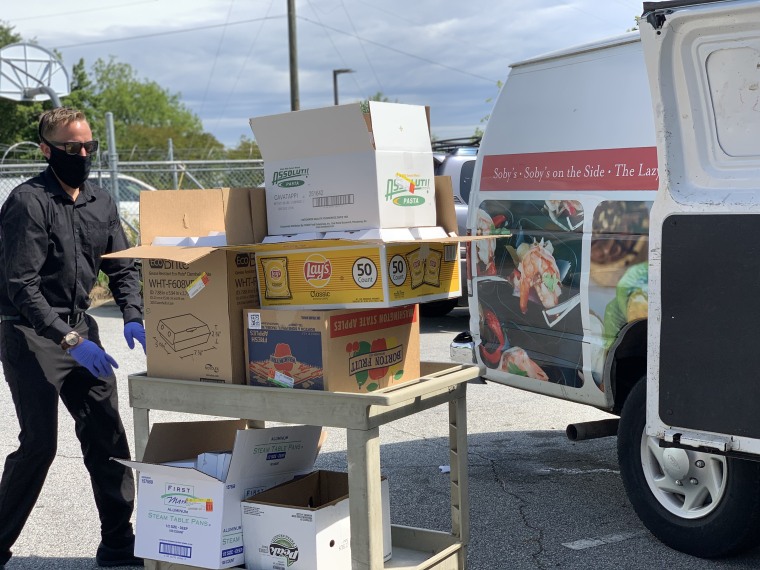
Lauren Couchois, a food and nutrition services culinary specialist with Greenville County Schools, said the program has been instrumental in keeping Greenville students fed during the pandemic.
“We feed the kids on the regular academic days, but on the weekends, during a time right now where the pandemic has hit nationally and created so much more insecurity for families as far as food and jobs, this partnership has been phenomenal,” Couchois told TODAY. “It’s ensuring that when kids are not in schools, they’re getting meals.”
The future of the program
But funding for the initiative is at risk: Sobocinski said federal funds must be used by the end of 2020, leaving thousands of people wondering what will happen to the meal program in 2021.
“What are we going to do in January, February and March?” Sobocinski asked. “We’ve recognized a need now, and the private sector is trying to figure out how we can keep going, but we need those federal or state dollars to make it work.”
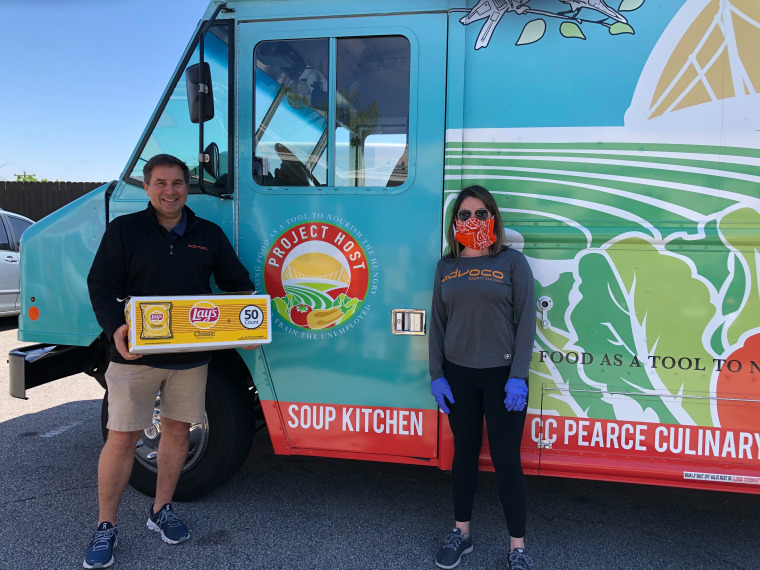
As members of the community work to find a solution to the funding issue, Tobin Simpson, CEO of Project Host, a soup kitchen that provides meals for 150 people a day and runs a food truck to distribute between 550 and 600 meals per week, said that, without help from the Greenville restaurateurs, his program will struggle.
“We have told these communities that we would be a resource and help them and I wouldn’t want to go back and tell them there’s no more funding,” Simpson told TODAY, explaining that the majority of Project Host’s volunteers are at a high risk for COVID-19 due to their ages, leaving the program with little to no help preparing meals on site. “The need is still there. The numbers have not declined at all. If we hit January without any support, it’s going to be difficult.”
Coming together to support the community
Simpson said it’s been incredible to see restaurant employees and organizations come together to meet the needs of the community.
“It’s hard right now to make a restaurant work, to get guests coming in and purchasing food, so this came at a perfect time,” Simpson explained. “And the restaurants, they could easily just put something in a container and turn it around and send it out to us, but I look at these meals and they’re putting as much love and effort into these meals, if not more, than they would with the rest of the food in their restaurants. It’s humbling and it’s amazing and it just shows the love and the generosity of the restaurants in our community.”
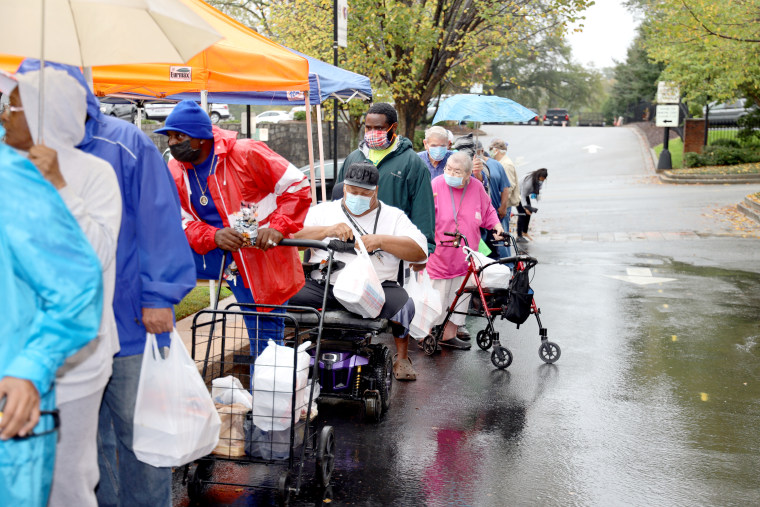
Sobocinski agreed that being involved in the initiative, which will have made more than 100,000 meals for those experiencing food insecurity by the end of 2020, has been the boost his business needs. At the start of the pandemic, Sobocinski’s restaurant group went from 400 employees to 40, but because of lighter COVID-19 restrictions and the meal program, he’s been able offer every employee their job back and now has 300 paid employees back on his roster.
“It’s allowing restaurant owners to know, ‘This week I’m going to have to prepare this many meals and I’m going to get paid this amount per meal,'” Sobocinski explained. “Then they can schedule staff to prepare these meals and get paid for it, and it’s obviously feeding a need in our community which is equally important as keeping people employed.”
The work is worth it
For Sobocinski, who is working to collect private donations to continue providing meals and funding restaurants, the gratitude he’s seen from recipients of his meals is what keeps him fighting to continue.
“It’s been overwhelming” said Sobocinski. “I’ve had the pleasure of going out and being on the front lines delivering. There’s a lot of tears. Some people will tell you a story about how it’s been a week since they’ve had a warm meal or five days since they’ve had anything nourishing. There’s a lot of thank-you’s.”
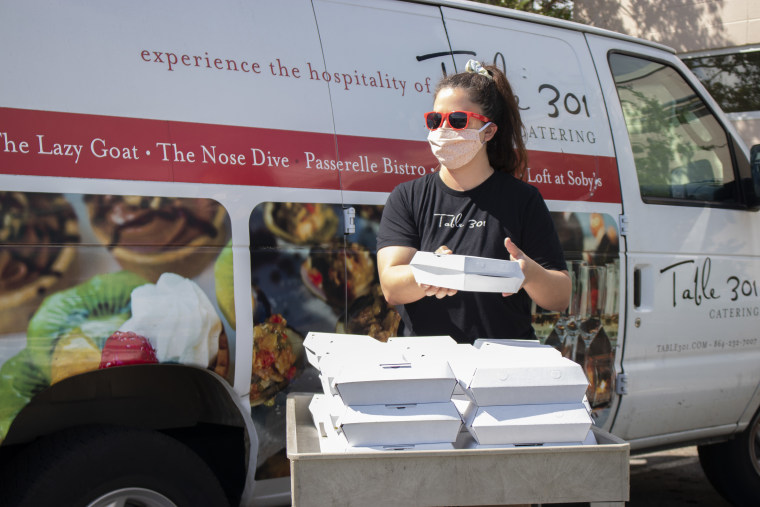
The collaborative effort is just what Greenville needed, in Sobocinski’s opinion.
“To see the generosity and the kindness at a time when everybody’s just ready for 2020 to be over — you look for the silver lining and there it is,” he said.


